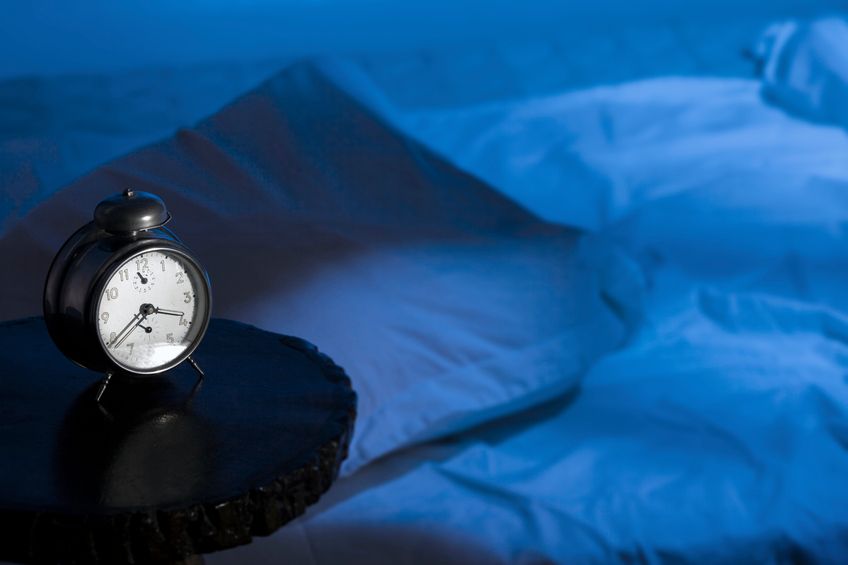Miscellaneous
Articles
A Quick Checklist For Better Sleep: How Many Habits Can You Check Off Your List?
by Poliquin Group™ Editorial Staff
9/27/2016 10:23:32 AM

Do you find it impossible to catch a full night of restful sleep? Might be because your sleep hygiene is subpar. Don’t worry. We’ve got you covered! Here’s a list of habits that promote a good night’s sleep. How many of them can you check off your list?
#1: Avoid Caffeine After 1 p.m.
Caffeine can mess up your internal body clock, especially if you’re drinking it all day long. Big surprise, right?! What you might not know is that caffeine, even used in the morning, can increase cortisol in people who are anxious, reducing the ability to go to sleep many hours later. Avoiding it altogether may be beneficial if you have trouble getting your snooze on due to a racing mind.
#2: Eliminate Light In Your Bedroom At Night
Light exposure serves as a key regulator of sleep. When your eyes are exposed to light, melatonin release is halted and body temperature stays elevated, inhibiting sleep. Get blackout curtains and cover up electronics that emit light to improve your quality of sleep.
#3: Get A Blue Light Blocker For Your Screens
The recommendation used to be to avoid screens entirely in the hour before bedtime. But we get it. No one’s going to do this. Therefore, the next best option is to get a blue light blocker because blue light seriously hampers melatonin production and has a stimulating effect on the brain. For computers, you can install f.lux. For Android phones, try Twilight. For all other blue light-blocking needs, try amber colored glasses.
#4: Get Bright Light Exposure First Thing In The Morning
Light serves as the regulator of your “master clock,” which controls your circadian rhythm and ability to sleep. To “anchor” your master clock, you want to get bright light exposure for at least 30 a day, preferably in the morning after waking up.
#5: Pick A Regular Bedtime
Studies show people with trouble sleeping tend to improve when they have a set bedtime that is between 9:30 and 11:00 p.m. Having a regular bedtime uses both the power of habit and allows you to take advantage of your natural circadian rhythm: Your body temperature peaks as sunset approaches, coinciding with release of the hormone leptin, which will suppress hunger and signal the brain to burn fat. Then, melatonin is released, brain function in reduced, and you’re ready for a restful night’s sleep.
#6: Use Cool Temps To Help You Sleep
Warm temperatures at night and cold temperatures during the day inhibit circadian rhythms. Whenever possible opt for cool at night and warm during the day to mimic the ambient temperature outside.
#7: Eat Quality Carbs At Dinner
Higher carb foods are relaxing because they lower cortisol and increase the “feel good” neurotransmitter serotonin. People on very low-carb diets often have trouble sleeping due to low serotonin. Therefore, including complex carbs at dinner, such as fruit, grains, or starchy vegetables like sweet potatoes, may have a calming effect and get you ready for a restful night in dreamland.
#8: Have Regularly Schedule Meals, Prioritizing Protein
Having regularly scheduled meals helps you avoid low blood sugar or elevations in cortisol. Plan meals around high-quality protein because at least one recent study found that people who eat more protein sleep better and wake up less frequently during the night compared to those on a high-carb diet.
#9: Avoid Late Night Eating
Late night eating, especially junk food, impedes the cascade of hormones that promote sleep. Have your last meal at least an hour before bedtime so that insulin levels can drop, allowing for release of leptin, thyroid hormone, and melatonin in a cascading fashion for restful sleep.
#10: Train Hard, But Preferably Not At Night
Exercise can improve quality and quantity of sleep. Most people find best results when they avoid training at night. Exercise is stimulating and often elevates cortisol. If you have the option, get your workout in between 3 and 6 p.m. when body temperature is elevated and strength is highest.
#11: Try Relaxation Techniques
Deep breathing, meditation, and other calming methods such as taking a bath or doing progressive muscle relaxation have all been shown to improve sleep.
#12: Do A Gratitude Journal & Next Day To-Do List
Writing down all the things you need to think about can help you clear your mind of worries that inhibit sleep. A gratitude journal in which you jot down what you’re grateful for has a calming effect that can focus your attention on the positive aspects of your life and away from the worries that keep your mind racing all night long.
Need More Help?
If you’re still suffering from insomnia or problems sleeping, supplementation with a few key nutrients may be in order. Sleep supplements are especially useful for busy people because they allow you to increase your sleep efficiency—that is, they help knock you out quickly, sleep deeply, and wake up refreshed. Here’s a list. of some helpful nutritional aids that can help you get all the rest you need
Copyright ©